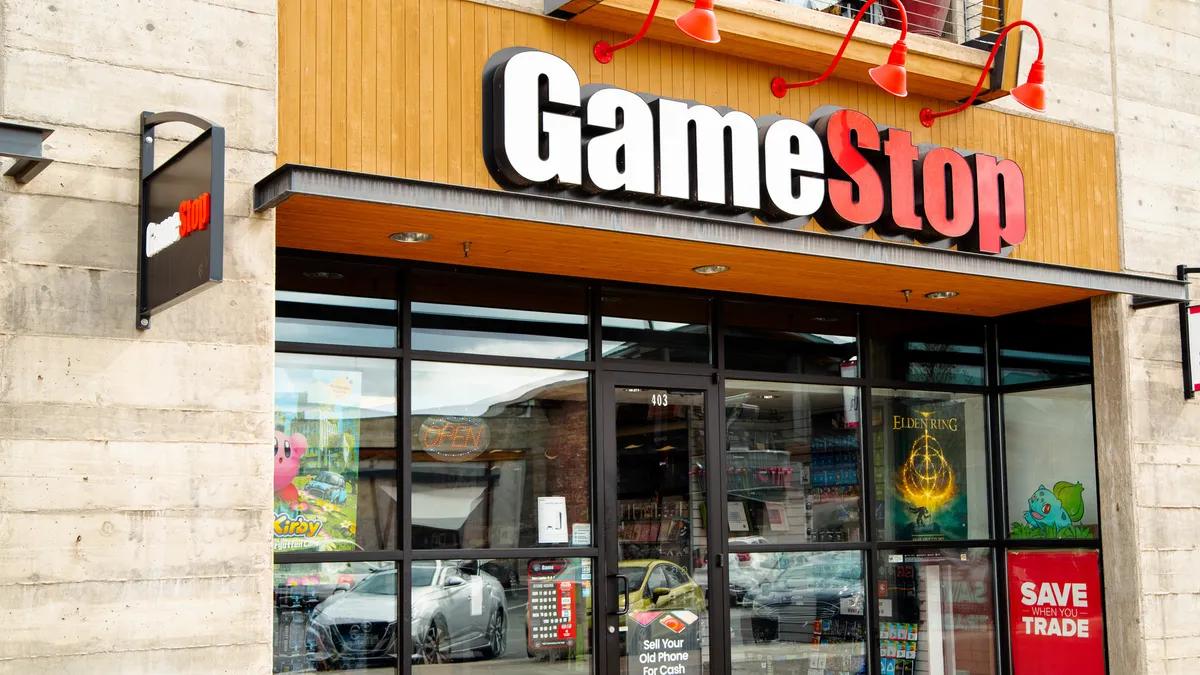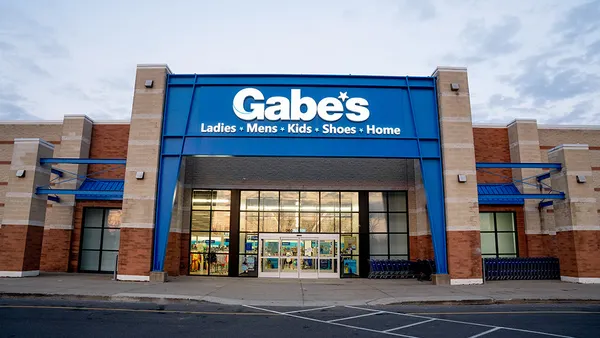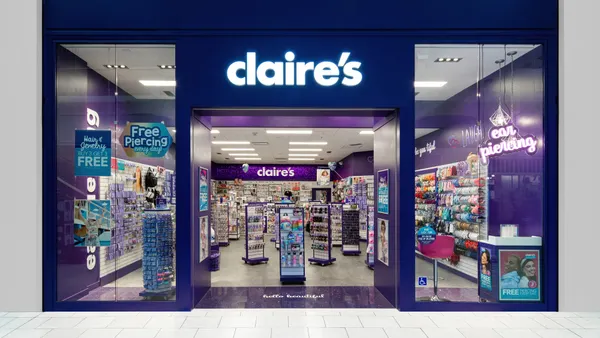Dive Brief:
- GameStop said Tuesday in a regulatory filing that it recently eliminated an undisclosed number of jobs as a cost-saving measure. The move comes as the video game retailer reported double-digit net sales declines in the fourth quarter and for the full year ending Feb. 3.
- Fourth-quarter net sales fell more than 19% year over year to $1.79 billion from $2.23 billion last year. Net income for Q4 rose 31% to $63.1 million, up from $48.2 million, but gross profit fell 16% to $419.2 million, down from $499.8 million a year earlier, the company said.
- The company reported net sales for the full year fell 11% to $5.27 billion from $5.93 billion the prior year. It swung to a net income of $6.7 million from a net loss of $313 million in the year-ago period.
Dive Insight:
GameStop said this week it had about 8,000 full-time salaried and hourly employees and between 13,000 and 18,000 part-time, hourly workers globally, depending on the time of year, as a result of the seasonal nature of the business. GameStop, which didn't conduct an earnings call this week, did not immediately respond to a question from Retail Dive regarding how many people were affected by the recent layoffs or what date they took effect.
A mix shift in software sales, fewer large game console releases, declining hardware sales and the growth of subscription services contributed to GameStop’s Q4 and full-year sales declines despite an extra week on the calendar, Wedbush analysts led by Michael Pachter said in a Wednesday note.
“With its current cash balance, GameStop can weather $100 million of annual losses for a decade or more. However, should its revenues decline by $150 – 200 million per year (which we think is highly likely given its lack of clear strategy to replace lost games sales), it may have trouble trimming costs fast enough to stem the growth of its losses. If we’re right, GameStop has a likely runway of no more than five years,” Pachter said.
As of February, GameStop said it had 4,169 stores — 2,915 were in the United States. The rest are in Canada, Europe and Australia. GameStop in its Securities filing yesterday echoed the concerns of many retailers, saying consumer reticence on discretionary spending is affecting the bottom line.
Additionally, the company called out the ongoing shift from physical media to digital media in the gaming world. All current gaming consoles from the big three manufacturers — Sony, Nintendo and Microsoft — have download technology. Additionally, GameStop noted that Sony and Microsoft offer game consoles that don’t use physical software. Sales of digital-only consoles represent another risk factor that could adversely affect retail software sales, GameStop said.
This week, the company also announced that it has appointed Daniel Moore as the company’s principal financial officer, effective Monday. Moore had served in that capacity on an interim basis and will continue simultaneously serving as principal accounting officer.
GameStop’s turnaround plan is based on enhancing its omnichannel retail offering, leveraging brand equity to support growth and cost containment. However, the company’s declining sales are problematic and unlikely to subside, Pachter said in emailed comments to Retail Dive.
“We see nothing in their ‘strategy’ that will stop the revenue declines and nothing in their investment plans that will allow them to survive for more than a decade,” Pachter said. “We expect them to keep losing more money each year and eventually shut down.”














